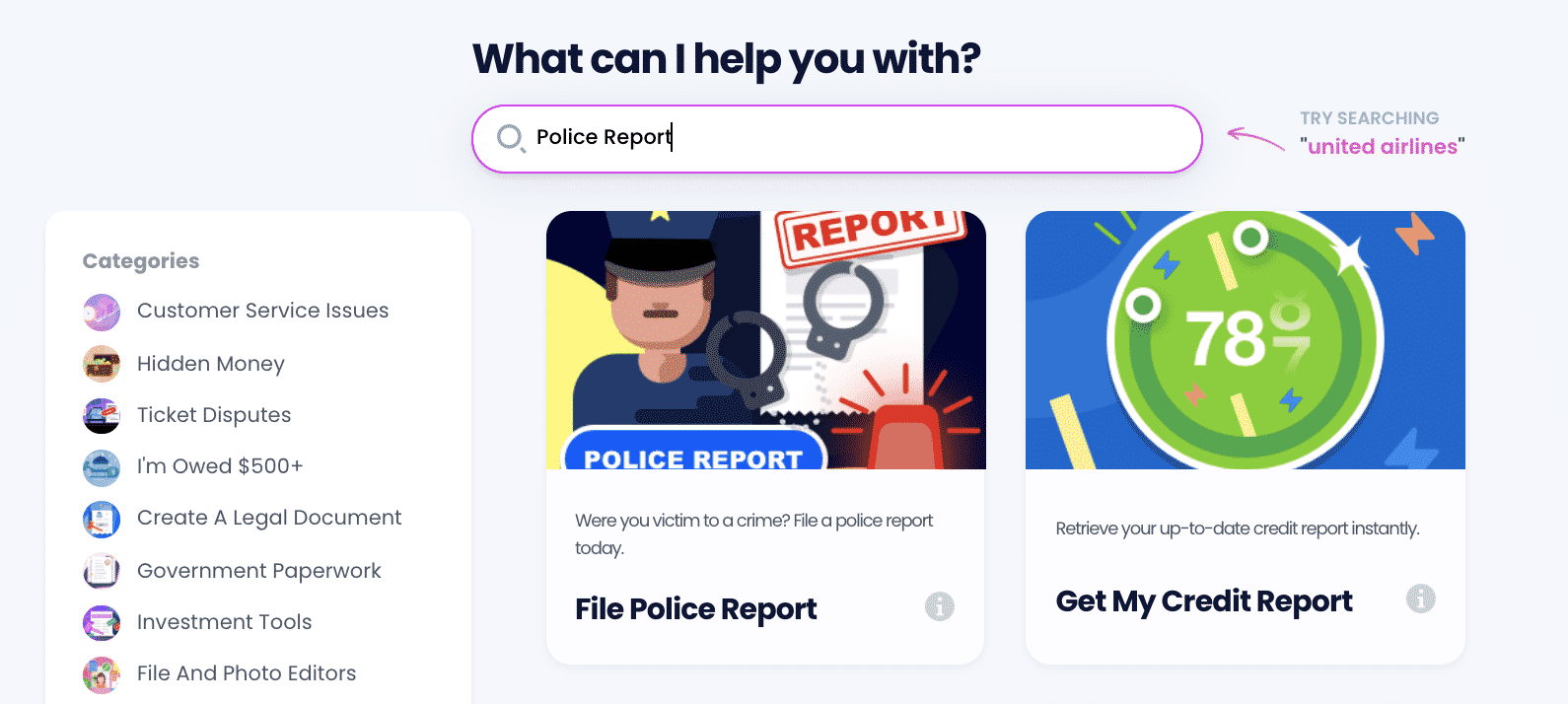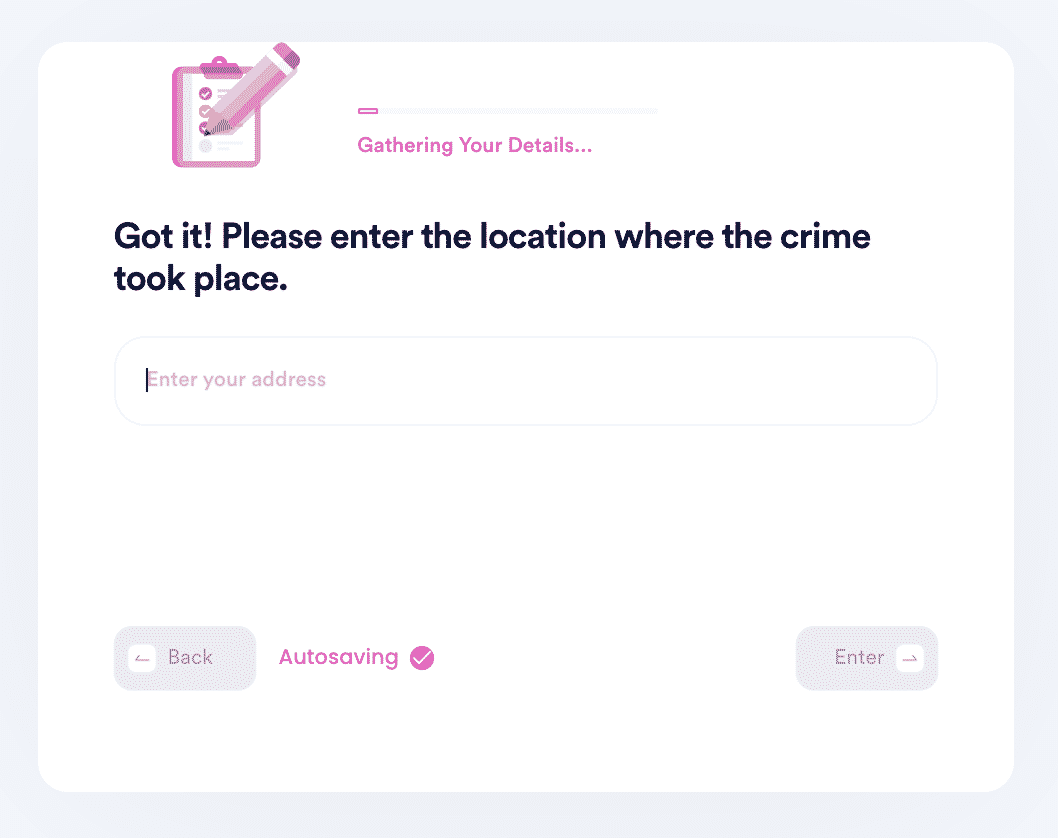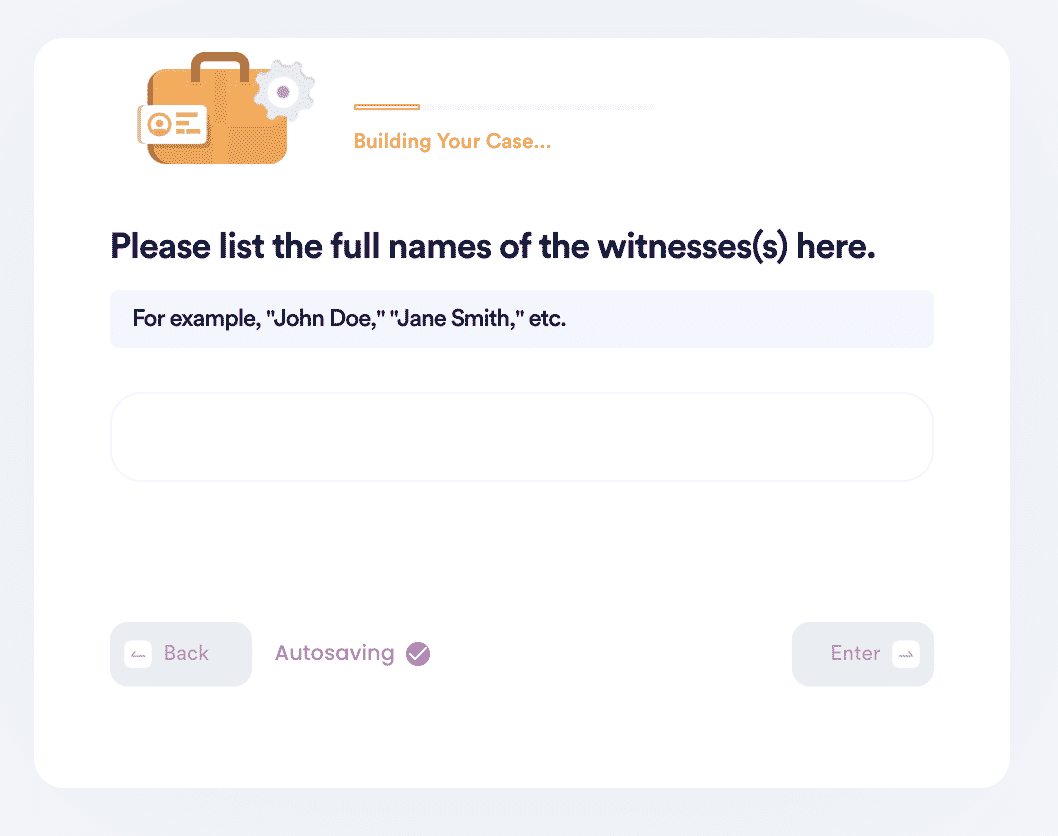Set the Wheels in Motion: File a Police Report in San Diego
Sometimes, when you witness a crime, you are duty-bound to tell the police about it, even if it's not an emergency. However, going to the police station, waiting to speak to someone, and then giving them all the information you have will take up a lot of your time, especially if it’s for something like reporting a scammer or stolen items like a phone. So it might be more convenient for you to .
Even when it comes to online filing, it may be confusing to try and figure out which crimes can be reported online and which ones require you to call 911 or go to the police station. But DoNotPay will only allow you to file the report if certain necessary conditions are met. So you can do what's necessary without wasting time or wading through all the dos and don'ts on the San Diego PD website.
Is It an Emergency or a Non-emergency?
The first thing you need to know when you're reporting a crime is whether it's an emergency or a non-emergency. Emergencies can't be reported online. The correct way to respond to an emergency would be to speak to a police officer you see in the area or call 911.
If the situation is a non-emergency, then you can call a non-emergency police line or report the crime online. Even when it comes to non-emergencies, only a few of them can be reported online when you live in San Diego.
| Emergencies | So how do you figure out whether a crime is an emergency? You'll have to ask yourself the following questions:
If you respond "yes" to any of the above questions (even if it's just one of them), then the crime is an emergency and you should call 911. |
| Non-emergencies | How do you figure out if a situation is a non-emergency? In general, crimes in which there is no serious personal injury, property damage, or property loss are not emergencies. In addition, if the person committing the crime has already fled and is unlikely to return, then there's not much of a point in mobilizing emergency services because they will not be able to do much about the situation right away. Of course, you should still report the situation by calling a non-emergency police number or doing an online report. |
Which Non-emergencies Can Be Reported Online?
Although several non-emergencies should be reported to the police, only a smaller subset of these can be reported online. SDPD allows you to report the following types of crimes online:
- Harassing communications: Are you receiving letters/emails/texts from someone who is harassing you?
- Lost property: Did you lose something in a public place?
- Theft: Did someone steal your wallet?
- Theft from vehicle: Did someone break into your vehicle and steal something you'd left in there?
- Vandalism and vandalism of a vehicle: Did someone key your vehicle or draw graffiti on your walls?
- Vehicle tampering: Did someone unscrew your valves and let the air out of your tires?
The above cases can all be reported online in San Diego, as long as the suspect is not on the scene. Since the police don't have to respond immediately to these types of issues, online reporting is considered acceptable. However, if, in your judgment, the police need to arrive immediately and look into the issue, it's better to call 911.
How Do You File an Online Police Report in San Diego?
If the type of crime you want to report falls into one of the above-mentioned categories in which online reporting is considered acceptable, you can go to SFPD's online reporting system where they will ask you several questions that you can respond to, to submit your police report.
Keep in mind that online reporting is not anonymous. Although the police will try to protect your identity as much as possible, you may still be subpoenaed if your testimony is needed in court.
Here are some of the things that it's good to know when you file a police report:
- What type of crime is it?
- Where exactly did it occur?
- When did it occur?
- Do you know what weapon was used?
- How many people were hurt and what types of injuries did they sustain?
- If a car/vehicle was involved, what was its color, make, license number, etc.?
- If you saw the suspect, can you describe him/her in terms of age, race, sex, height, weight, eye color, hair color, hair length, etc?
How to File a Police Report in San Diego Using DoNotPay
As you may have gathered, filing an online report is not completely straightforward. You need to figure out if the situation is an emergency or a non-emergency. If it's a non-emergency, it may still not be eligible for online reporting if it's not a certain type of crime.
If you want to file a police report but don't know where to start, DoNotPay has you covered in 3 easy steps. These are:
- Search "police report" on DoNotPay and select the type of incident you would like to report.

- Tell us more about the incident that occurred, including the location, date, time, and sequence of events. Include information on financial losses, personal injuries, or property damage that happened as a result.

- List any suspects or witnesses you are aware of, verify your contact information, and submit.

Filing Specific Police Reports With DoNotPay
Keep in mind that you can use DoNotPay to file online police reports anywhere, not just . Here are specific ones for you to choose from:
- You can file a police report for identity theft.
- You can file a police report for a stolen package.
- You can file a police report for a car accident.
- You can file a police report for a hit-and-run.
- You can file a police report for a stolen wallet.
DoNotPay can simplify your life in many ways, especially when it comes to filing police reports. By just answering a few questions and giving a brief description of the crime on DoNotPay, you can set the wheels in motion to ensure that justice is served.
 By
By